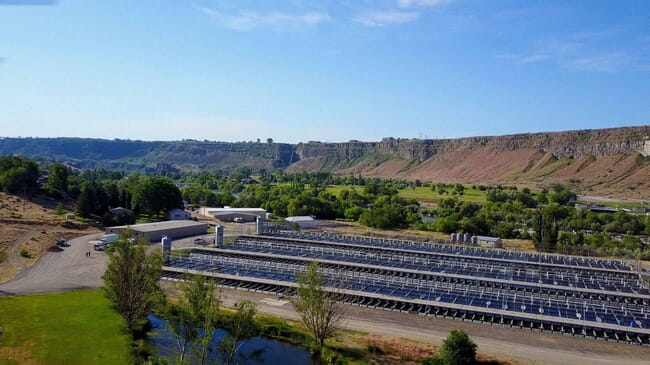
© Riverence
Feed is the primary cost and a major contributor to the aquaculture sector’s carbon and water footprint. Sourcing plant-based, traceable ingredients free of deforestation is a challenge for the industry. However, Benson Hill says that its portfolio of innovative soy-derived ingredients offers an efficient and cost-effective solution to help improve sustainability and scale this growing market.
“Benson Hill has developed soy ingredients that are uniquely suited for aquaculture and check all the boxes from a nutrition, sustainability and cost perspective,” said Jesse Trushenski, chief science officer of Riverence, in a press release. “It’s exciting to have a product designed for our market that supports improved performance of our fish, is traceable, and has a very clean carbon and water profile. We decided to incorporate Benson Hill’s ingredients again this year and believe it’s the beginning of a long and valuable partnership.”
Benson Hill uses proprietary soybean varieties express ultra-high protein (UHP) and low anti-nutrient levels, reducing the need for processing steps to concentrate protein levels. According to the company, the result is a minimally processed ingredient designed as an alternative to commodity soy protein concentrate (SPC) that requires up to 70 percent less water and up to 50 percent less CO2 equivalent to produce than US-sourced SPC, and up to 83 percent less water and up to 89 percent less CO2 equivalent when compared to Brazilian-sourced SPC, accounting for the impacts of deforestation.
The ingredients derived from UHP varieties demonstrate equivalent performance to an SPC-based diet in salmon and trout, as measured by feed conversion ratio.
Benson Hill’s soy-based ingredients will be incorporated into the aquaculture diets manufactured by Riverence’s preferred supplier Rangen, a brand of Wilbur-Ellis Nutrition.
Benson Hill works with farmers to grow its UHP soybean varieties with an emphasis on using regenerative agriculture practices under a policy that prohibits deforestation. Through this collaboration, the companies are working to develop a supply of traceable and deforestation-free certified Benson Hill ingredients.
“Sustainable aquaculture systems will be an increasingly critical source of animal protein as the pressures of climate change intensify,” said Matt Crisp, CEO of Benson Hill. “Riverence is a true sustainability leader for the industry with a keen focus on resource conservation that consumers value. Ingredient innovation provides a meaningful impact on feed quality, sustainability and traceability. We’re thrilled to work with the Riverence team to advance aquaculture together.”




